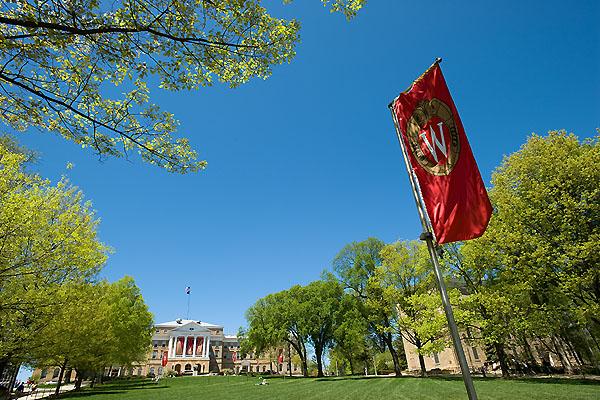Once a leader in pro-transgender initiatives, Wisconsin is now a follower, a University of Wisconsin study uncovered.
The study on the experiences of transgender high school students revealed that despite some gains made for students in schools implementing protective transgender policies, transgender students still face challenges.
The Gay Straight Alliance for Safe Schools requested the study, released in February, to add to the currently lacking body of research on transgender experiences.
UW professors Maurice Gattis and Sara McKinnon co-authored the study and found protection of transgender students varies widely among school districts. Even in schools ranked well, the protection they offer is often poorly implemented, according to the study.
While some districts are more supportive of pro-transgender initiatives, others are often indifferent, with some even opposing protections, Brian Juchems, senior director of education and policy at GSAFE, said. He said Wisconsin is behind other states in implementing modern non-discrimination policies for transgender people.
“Where we once were a leader, we now are a follower,” Juchems said.
Juchems said one of the most surprising findings was transgender youth are more likely to be involved with and disciplined for fights at school. He said a number of students identified the need to protect themselves before other people picked on them, Juchems said.
Another surprise was some transgender students, knowing they are targets for bullying, chose to bulk up to make themselves more intimidating, Juchems said.
Juchems also said there were some students who reported positive experiences within their school and community. Juchems said the study revealed students seemed to do exceptionally well at schools which had some solutions in place.
Gattis, a UW social work professor, said he was surprised students went to great lengths to attend school despite being bullied. Gattis said the study also revealed many schools do not have the proper facilities to accommodate transgender students, such as locker rooms and restrooms.
The qualitative study interviewed 21 transgender students from four different metropolitan areas throughout Wisconsin with the purpose of documenting transgender and gender non-conforming students, according to the report.
“We narrowed down our options and decided to answer this specific question in order to get information to inform policy,” Gattis said.
The study defines transgender as a person whose gender identity and/or expression is not aligned with the gender they were assigned at birth and people whose gender expression differs from stereotypical expectations.
Despite the relatively small sample size, Juchems is confident the study will help organizations like GSAFE better support transgender students.
“It really helps tell the story more than just numbers do,” Juchems said.
Gattis said to continue research, the current plan is to interview high school teachers and administrators in focus groups located in both Madison and Green Bay while also expanding into rural areas.
Communities, school districts and the state government need to act to ensure Wisconsin modernizes its protections to ensure that students can learn in a safe environment, Juchems said.
The Wisconsin Partnership Program at the UW-Madison School of Medicine and Public Health funded the study.














